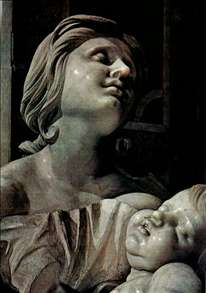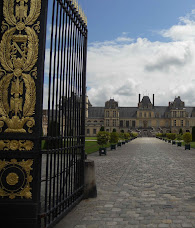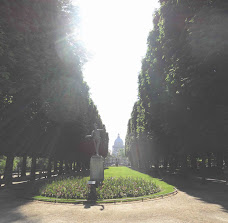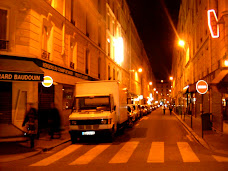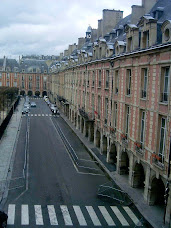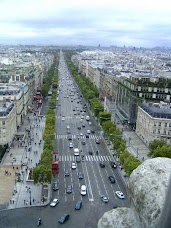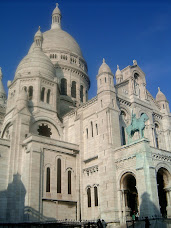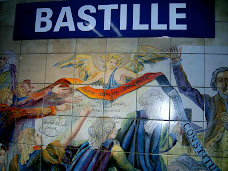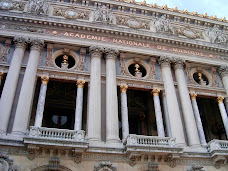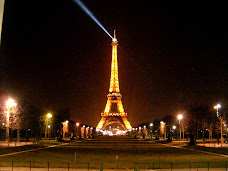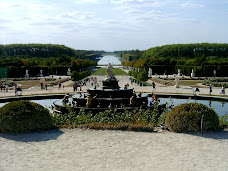(...)
And it is to be noted that it is the fact that Art is this intense form of individualism that makes the public try to exercise over it an authority that is as immoral as it is ridiculous, and as corrupting as it is contemptible. It is not quite their fault. The public have always, and in every age, been badly brought up. They are continually asking Art to be popular, to please their want of taste, to flatter their absurd vanity, to tell them what they have been told before, to show them what they ought to be tired of seeing, to amuse them when they feel heavy after eating too much, and to distract their thoughts when they are wearied of their own stupidity. Now Art should never try to be popular. The public should try to make itself artistic. There is a very wide difference. If a man of science were told that the results of his experiments, and the conclusions that he arrived at, should be of such a character that they would not upset the received popular notions on the subject, or disturb popular prejudice, or hurt the sensibilities of people who knew nothing about science; if a philosopher were told that he had a perfect right to speculate in the highest spheres of thought, provided that he arrived at the same conclusions as were held by those who had never thought in any sphere at all - well, nowadays the man of science and the philosopher would be considerably amused. Yet it is really a very few years since both philosophy and science were subjected to brutal popular control, to authority in fact - the authority of either the general ignorance of the community, or the terror and greed for power of an ecclesiastical or governmental class. Of course, we have to a very great extent got rid of any attempt on the part of the community or the Church, or the Government, to interfere with the individualism of speculative thought, but the attempt to interfere with the individualism of imaginative art still lingers. In fact, it does more than linger: it is aggressive, offensive, and brutalising.
In England, the arts that have escaped best are the arts in which the public take no interest. Poetry is an instance of what I mean. We have been able to have fine poetry in England because the public do not read it, and consequently do not influence it. The public like to insult poets because they are individual, but once they have insulted them they leave them alone. In the case of the novel and the drama, arts in which the public do take an interest, the result of the exercise of popular authority has been absolutely ridiculous. No country produces such badly written fiction, such tedious, common work in the novel form, such silly, vulgar plays as England. It must necessarily be so. The popular standard is of such a character that no artist can get to it. It is at once too easy and too difficult to be a popular novelist. It is too easy, because the requirements of the public as far as plot, style, psychology, treatment of life, and treatment of literature are concerned, are within the reach of the very meanest capacity and the most uncultivated mind. It is too difficult, because to meet such requirements the artist would have to do violence to his temperament, would have to write not for the artistic joy of writing, but for the amusement of half-educated people, and so would have to suppress his individualism, forget his culture, annihilate his style, and surrender everything that is valuable in him. In the case of the drama, things are a little better: the theatre-going public like the obvious, it is true, but they do not like the tedious; and burlesque and farcical comedy, the two most popular forms, are distinct forms of art. Delightful work may be produced under burlesque and farcical conditions, and in work of this kind the artist in England is allowed very great freedom. It is when one comes to the higher forms of the drama that the result of popular control is seen. The one thing that the public dislike is novelty. Any attempt to extend the subject matter of art is extremely distasteful to the public; and yet the vitality and progress of art depend in a large measure on the continual extension of subject-matter. The public dislike novelty because they are afraid of it. It represents to them a mode of Individualism, an assertion on the part of the artist that he selects his own subject, and treats it as he chooses. The public are quite right in their attitude. Art is Individualism, and Individualism is a disturbing and disintegrating force. Therein lies its immense value. For what it seeks to disturb is monotony of type, slavery of custom, tyranny of habit, and the reduction of man to the level of a machine. In Art, the public accept what has been, because they cannot alter it, not because they appreciate it. They swallow their classics whole, and never taste them. They endure them as the inevitable, and, as they cannot mar them, they mouth about them. Strangely enough, or not strangely, according to one's own views, this acceptance of the classics does a great deal of harm. The uncritical admiration of the Bible and Shakespeare in England is an instance of what I mean. With regard to the Bible, considerations of ecclesiastical authority enter into the matter, so that I need not dwell upon the point.
But in the case of Shakespeare it is quite obvious that the public really see neither the beauties nor the defects of his plays. If they saw the beauties, they would not object to the development of the drama; and if they saw the defects, they would not object to the development of the drama either.The fact is, the public make use of the classics of a country as a means of checking the progress of Art. They degrade the classics into authorities. They use them as bludgeons for preventing the free expression of Beauty in new forms. They are always asking a writer why he does not write like somebody else, or a painter why he does not paint like somebody else, quite oblivious of the fact that if either of them did anything of the kind he would cease to be an artist. A fresh mode of Beauty is absolutely distasteful to them, and whenever it appears they get so angry and bewildered that they always use two stupid expressions - one is that the work of art is grossly unintelligible; the other, that the work of art is grossly immoral. What they mean by these words seems to me to be this. When they say a work is grossly unintelligible, they mean that the artist has said or made a beautiful thing that is new; when they describe a work as grossly immoral, they mean that the artist has said or made a beautiful thing that is true. The former expression has reference to style; the latter to subject-matter. But they probably use the words very vaguely, as an ordinary mob will use ready-made paving-stones. There is not a single real poet or prose writer of this century, for instance, on whom the British public have not solemnly conferred diplomas of immorality, and these diplomas practically take the place, with us, of what in France is the formal recognition of an Academy of Letters, and fortunately make the establishment of such an institution quite unnecessary in England. Of course, the public are very reckless in their use of the word. That they should have called Wordsworth an immoral poet was only to be expected. Wordsworth was a poet. But that they should have called Charles Kingsley an immoral novelist is extraordinary. Kingsley's prose was not of a very fine quality. Still, there is the word, and they use it as best they can. An artist is, of course, not disturbed by it. The true artist is a man who believes absolutely in himself, because he is absolutely himself. But I can fancy that if an artist produced a work of art in England that immediately on its appearance was recognised by the public, through their medium, which is the public press, as a work that was quite intelligible and highly moral, he would begin to seriously question whether in its creation he had really been himself at all, and consequently whether the work was not quite unworthy of him, and either of a thoroughly second-rate order, or of no artistic value what so ever.
(...)
